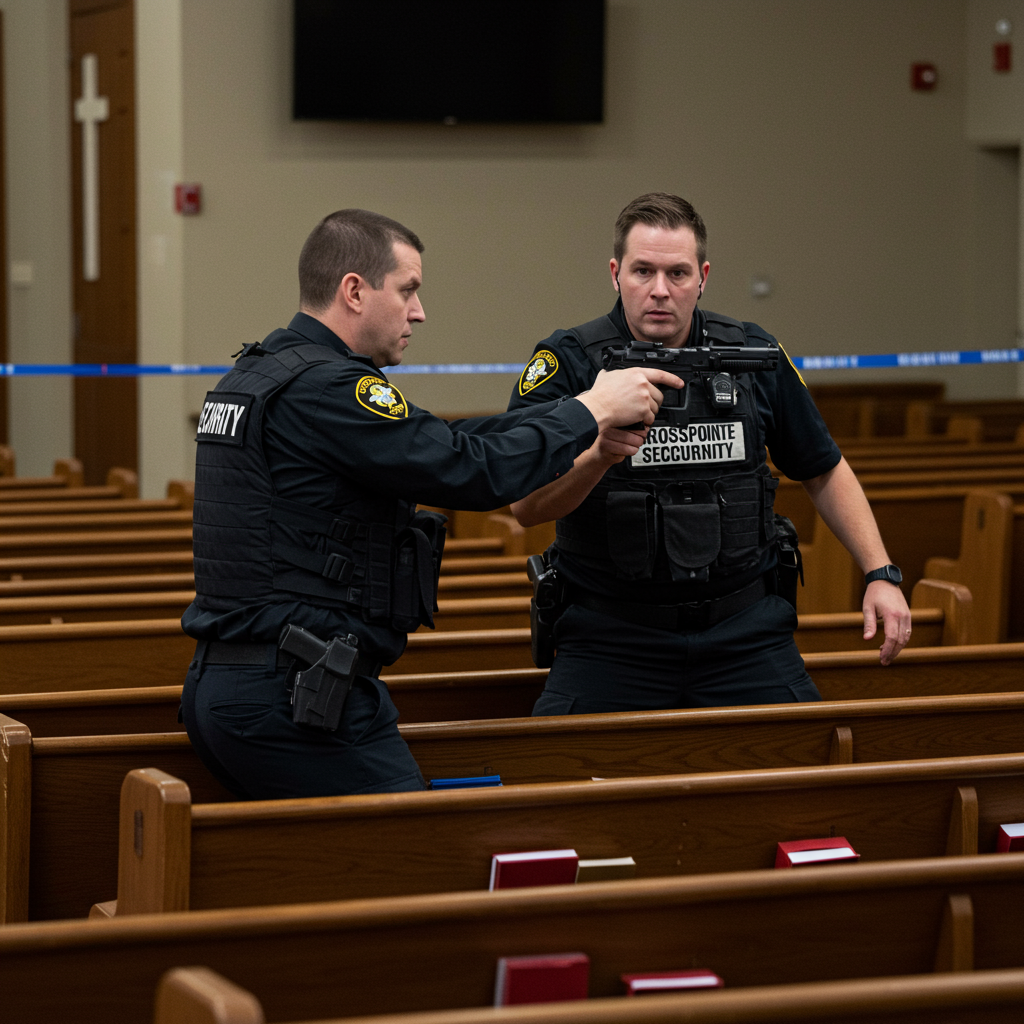In a dramatic conclusion to a high-profile federal trial, Sean “Diddy” combs, the renowned hip-hop figure, was found not guilty of the most serious charges he faced, including racketeering conspiracy and sex trafficking. However, a jury in Manhattan federal court delivered a mixed verdict, convicting the 55-year-old music mogul on two lesser counts related to the transportation of individuals for prostitution. The decision, reached after three days of jury deliberation, marks a pivotal moment in the legal battles confronting Combs, significantly altering his immediate future and potential prison exposure compared to the severe penalties associated with the initial accusations.
Sean “Diddy” Combs had been on trial for approximately seven weeks, defending himself against harrowing allegations that painted a starkly different picture from his public persona as a global entertainer and entrepreneur. The federal government had accused the founder of Bad Boy Records of leading a “criminal enterprise” for over two decades, using his immense power and wealth to facilitate sexual abuse, exploitation, and other illegal activities. Throughout the proceedings, Combs maintained his innocence, pleading not guilty to all charges.
Mixed Verdict Delivered in High-Stakes Trial
The jury’s findings represented a partial victory for the defense. Sean “Diddy” Combs was acquitted of one count of racketeering conspiracy and two counts of sex trafficking by force, fraud, or coercion. These were the most severe charges, carrying potentially decades-long, or even life, prison sentences.
However, the panel of eight men and four women did find Combs guilty on two counts of transportation to engage in prostitution. These convictions fall under the federal Mann Act, which prohibits transporting individuals across state lines or internationally for the purpose of prostitution. Each of these counts carries a maximum penalty of 10 years in federal prison. This means Combs could face a cumulative maximum sentence of up to 20 years based on these convictions.
The courtroom reaction was immediate and emotional. Upon hearing the verdict, Combs reportedly fell to his knees in prayer, displaying visible relief. His family, present in the courtroom, reacted with applause and cheers. His defense team also showed outward signs of triumph, with lead attorney Marc Agnifilo making a celebratory fist. Combs reportedly thanked his family and expressed his love as he exited the courtroom.
Legal Ramifications and Potential Sentencing
Despite the acquittals on the most serious charges, the convictions on transportation to engage in prostitution are significant and carry substantial prison time. Assistant U.S. Attorney Maurene Comey indicated during the trial that the government would seek the maximum 20-year sentence.
Following the verdict, Combs’ defense team requested his immediate release from federal detention pending sentencing. He has been held at Brooklyn’s Metropolitan Detention Center since his arrest in September 2024. The defense proposed a $1 million bond, restrictions on his travel primarily within Florida, California, New York, and New Jersey, the surrender of his passport, and mandatory drug testing. They argued that his acquittal on the major charges and his status as a “model prisoner” justified release.
Judge Denies Bail, Citing Danger
U.S. District Judge Arun Subramanian, however, denied the request for bail. Judge Subramanian ruled that Combs must remain in federal custody while awaiting sentencing. The judge cited “ample evidence presented at trial of violent acts Combs had committed” as the primary reason for his decision.
He explicitly stated it was “impossible for the defendant to demonstrate by clear and convincing evidence that he poses no danger.” The judge referenced testimony and even defense concessions, noting that “the defense conceded the defendant’s violence in personal relationships saying ‘it happened’ in relation to Cassie Ventura and Jane.” Furthermore, the judge pointed to evidence of alleged “violence and illegal conduct after the searches on Combs’ homes – when he was aware he was under investigation,” stating this “highlights a disregard for the rule of law and a propensity of violence.” The conviction on the two counts of transportation for prostitution was also cited as a factor.
Sentencing is currently scheduled for October 3rd, 2025. While the maximum penalty is 20 years, federal sentencing guidelines, based on the specifics of the crime and the defendant’s history, could suggest a lower range. Prosecutors have preliminarily calculated a potential sentence between approximately four and five years.
Inside the Courtroom: Witness Testimony and Defense Strategy
The trial itself unfolded over seven weeks and featured dramatic and often graphic testimony from numerous witnesses. The government presented evidence and called nearly three dozen witnesses, including former personal assistants, stylists, and artists associated with Combs. Some testified under grants of immunity.
Central figures in the prosecution’s case were three women who testified about their experiences: his former long-term girlfriend, R&B singer Casandra “Cassie” Ventura, and two other women who testified under the pseudonyms “Jane” and “Mia.” They described allegations of sexual assault, physical violence, forced drug use, and coercion into participating in sexual acts, including “freak offs” and “hotel nights” involving male escorts.
Ventura provided emotional testimony detailing years of alleged physical and emotional abuse and feeling pressured into sexual encounters, fearing for her career and safety. “Jane” also testified about being pressured into similar scenarios, feeling financially dependent and using drugs to cope. A former assistant, “Mia,” accused Combs of multiple sexual assaults and forced labor. Another former assistant, Capricorn Clark, allegedly faced kidnapping and forced labor. The rapper Kid Cudi, identified as a romantic rival, had his car firebombed, which prosecutors alleged was ordered by Combs.
Key Evidence and Defense Counterpoints
A crucial piece of evidence shown repeatedly to the jury was surveillance video from 2016 depicting Combs physically assaulting Ventura in a Los Angeles hotel hallway. Ventura testified this occurred after she attempted to leave a “freak off.”
Assistant U.S. Attorney Christy Slavik argued in closing arguments that Combs manipulated women into drug-induced sexual encounters through lies, threats, or violence, asserting that guilt could be established even if participation wasn’t always against their will, provided it was coerced in at least one instance. She emphasized the impact on women like Cassie and Jane, alleging they were coerced into participating in sexual acts with sex workers under duress.
Combs’ defense team, led by Marc Agnifilo, did not call any witnesses during the trial, including Combs himself. Their strategy relied heavily on cross-examination and arguing that the government’s case was “badly exaggerated.” They portrayed the lifestyle described as a consensual “swingers” arrangement, albeit one acknowledging issues like violent behavior and drug use.
The defense conceded instances of domestic violence and angry outbursts, famously stating, “We own the domestic violence.” However, they maintained that Combs was not guilty of the specific sex crimes and denied he orchestrated a criminal enterprise. They argued that individuals in Combs’ inner circle had agency and chose to stay, contrasting this with the prosecution’s “criminal enterprise” narrative. Agnifilo portrayed Combs as a self-made successful Black entrepreneur unfairly targeted by overzealous prosecutors.
The Scene Outside the Courthouse
The trial attracted significant public attention, leading to a chaotic atmosphere outside the Manhattan federal courthouse. Supporters of Sean “Diddy” Combs gathered regularly, especially after the verdict. Crowds were seen chanting slogans like “Free Puff!” and “Not guilty,” with some holding fists in the air or wearing merchandise referencing Combs or the trial outcome. Music, including a song by his son, was played.
The scene outside also featured social media influencers who had been covering the trial from the courthouse. Figures like YouTuber Armon Wiggins noted the trial’s impact on “new media,” highlighting how influencers filled a gap in disseminating information from inside the courtroom when cameras were not allowed. Despite some disruptions and clashes with traditional media or security, the presence of influencers underscored the intense public interest generated by the case.
The Downfall of a Hip-Hop Titan
The trial and subsequent partial conviction cap a stunning and rapid fall from grace for Sean “Diddy” Combs. For three decades, he was a dominant force in hip-hop culture, building a vast empire encompassing music, fashion (Sean John), media, and more. His rise from Harlem and his larger-than-life persona made him a global celebrity.
However, the allegations that led to his legal troubles gained significant public traction following a civil lawsuit filed by Cassie Ventura in November 2023, detailing accusations of abuse and sexual assault. While that lawsuit was settled quickly out of court for a reported $20 million, it appeared to accelerate federal interest, leading to the highly publicized raids on his homes in Los Angeles and Miami in March 2024 and the subsequent federal indictment.
Regardless of the outcome of the criminal trial, Sean “Diddy” Combs still faces a multitude of civil lawsuits containing accusations of rape, sexual assault, and other misconduct from numerous plaintiffs. He has denied these civil allegations, suggesting they are attempts to secure financial “paydays.”
While Cassie Ventura’s attorney, Doug Wigdor, expressed a preference for convictions on the sex crimes and racketeering charges, he acknowledged satisfaction that Combs has been “finally held accountable” and faces significant jail time on the lesser charges. The verdict, while not the outright exoneration the defense sought, avoids the lengthy prison sentence tied to the most serious charges, yet confirms the jury found proof of illegal conduct related to transportation for prostitution.
Frequently Asked Questions
What specific charges was Sean ‘Diddy’ Combs convicted of?
Sean ‘Diddy’ Combs was convicted of two counts of transportation to engage in prostitution. These charges fall under the Mann Act, a federal law prohibiting the interstate or foreign transportation of individuals for prostitution. The jury acquitted him of racketeering conspiracy and two counts of sex trafficking by force, fraud, or coercion.
Why was Sean ‘Diddy’ Combs denied bail after the verdict?
U.S. District Judge Arun Subramanian denied Sean ‘Diddy’ Combs’ request for bail following the conviction, ordering him to remain in federal custody. The judge cited “ample evidence” of Combs’ violent acts presented during the trial, defense concessions about his violence, and alleged illegal conduct after federal searches as reasons why Combs could not prove he poses no danger to others. He remains detained at the Metropolitan Detention Center in Brooklyn.
What potential consequences does Sean ‘Diddy’ Combs face now?
Following his conviction on two counts of transportation to engage in prostitution, Sean ‘Diddy’ Combs faces a maximum statutory penalty of 10 years in prison for each count, potentially totaling up to 20 years. His sentencing hearing is scheduled for October 3rd, 2025. Prosecutors have estimated federal sentencing guidelines could suggest a term closer to four to five years. Additionally, Combs continues to face numerous civil lawsuits alleging sexual assault and other misconduct, independent of the criminal case outcome.



